

Is CBD Halal?
Table of Contents
CBD has become a popular food supplement. It has attracted attention from people with all kinds of political inclinations and religious beliefs. However, despite the benefits that attract people to CBD products, it's unclear whether CBD is halal or haram. For Muslims, it is a critical consideration because in the Qur’an, substances that “curtain the mind” are haram. That means substances that intoxicate are haram.
why not also read: Is CBD Oil Legal in the UK?
Considering that CBD is extracted from hemp varieties of cannabis, but doesn’t cause intoxication in itself, doesn’t that mean CBD is haram or halal?
What is CBD?
To understand whether CBD is halal or haram, the best place to start is by understanding what CBD is. CBD, or Cannabidiol, is an active compound that is extracted from cannabis. It may contain a small amount of Tetrahydrocannabinol. The acceptable amount of THC in legal CBD products is 0.2% in the UK.
THC in itself is haram because it is an intoxicant. However, the discussion of whether CBD is haram or halal is not as black and white as that of THC.
A Few Facts to Remember
There are several considerations to remember when determining whether CBD is halal or haram;
- CBD itself is halal because it is not an intoxicating substance.
- CBD products that contain THC, alcohol, nicotine, flavourings, or gelatine from non-halal animal products are haram.
- Vaping CBD is considered halal as long as the vape liquid doesn't contain any THC, nicotine, or other ingredients considered haram.
- Although there are no CBD products in the UK that are halal certified at the moment, you can opt for products that are THC-free, certified vegan, and not labelled as "tinctures."
Is CBD Halal?
As noted, CBD is halal. However, a majority of CBD products in the market also contain a trace amount of THC, which is a haram product.
However, the amount of THC in CBD is minimal. It is completely absorbed, doesn't cause intoxication, and there is no trace of it that can be detected, then makes CBD products that contain very small traces of THC halal.
There are some other ingredients contained in CBD products that may be haram. Some of these products include;
- Gelatine – Gelatine is commonly used in CBD capsules, and it is haram. However, if the capsules are made from bovine gelatine and the cow was slaughtered to halal standard, in that case, the gelatine would be permissible.
- Flavourings – Not all flavourings are haram. But the sources they come from can be. If the flavourings contain alcohol by-products or non-halal animal products, then the flavourings are haram. That would also make the CBD products they make haram as well.
- Vape juices – Vaping is still a grey area. Although most CBD e-liquids meet the halal standards, there is still a fierce debate on whether the act of vaping is halal in itself. If science can prove that vaping is entirely safe and that vape juices contain all-natural ingredients, then vaping should be permissible.
- Alcohol – Some CBD products like CBD tinctures are made by dissolving the hemp extract in alcohol. Although the amount of alcohol is negligible, tinctures can be easily avoided as there are other methods like supercritical CO2 extraction, which don't use alcohol or its derivatives. CBD lovers keen on only consuming halal products should avoid consuming CBD tinctures.
In some instances, consumption of small amounts of alcohol is permissible only if the purpose of the product is to heal. But this is only if there are no other options.
Why is CBD Halal if Cannabis is Haram?
There is a misconception that the cannabis plant as a whole is haram. It is the intoxicating cannabinoid THC which is considered haram. Not the whole cannabis plant. Some of the other substances found in the plant-like CBD are not considered haram because they are considered safe to consume, and they don't cause intoxication.
While CBD and other cannabinoids might not cause intoxication, it is haram to consume them alongside THC, which is a haram product.
CBD products that contain traces of THC are fine to consume as long as the THC is fully absorbed by your body and can't be detected. Because the UK standard for THC in CBD products is 1mg per container, items that meet this standard are likely to be halal.
Can You Find Halal CBD Products?
Despite the lack of certified halal CBD products, there are CBD products that meet halal standards, but you need to be cautious when purchasing them. Some tips to help you find halal CBD products include;
Find a trustworthy retailer
The UK CBD industry remains largely unregulated. It is easy to find some unscrupulous retailers selling poor-quality products and will even advertise them as halal. When sourcing CBD products that meet halal standards, find a transparent retailer about their process and, most importantly, what is in the bottle. This will give you a good idea of what to expect.
Rely on customer reviews and read the information provided on the website to find reputable and trustworthy retailers.
Third-party lab tests
Many retailers advertise their products as having been third-party tested. The best CBD brands and retailers will display the third-party lab results on their pages. These tests are conducted by independent laboratories to verify the content of a sample from each batch of products.
why not also read: What Does CBD Oil Taste Like?
You can use the third-party lab tests to select CBD products where no THC was detected or that only have trace amounts. You should always check the third-party lab results even when the brand advertises their products as "THC-free."
Certified Vegan Products
CBD products that are certified vegan contain no animal products. The certification prevents you from consuming items from animals that were not slaughtered to Halal standards. The products will also be free from insect products like cochineal red food colouring, which is also haram.
You can also try finding an official halal certification. Although it is currently difficult to find, it’s not impossible. But you have to do your due diligence.
Check the ingredients
Finding a CBD product with no or low THC content and vegan certification is one of the steps of finding halal CBD products. You should also check the ingredients. Some CBD products like CBD oils only have the necessary ingredients. But others have unnecessary extras.
When scrutinising the ingredients list, look out for additives, fillers, and flavours as these might not be halal.
How Do I Know My CBD is Halal?
Here is a quick checklist that you can use to ensure you buy halal CBD products;
- The method of extraction for your CBD products shouldn’t involve alcohol. Only purchase products whose CBD was extracted using CO2 extraction and not alcohol-based extraction.
- Make sure the CBD products you’re purchasing are third-party tested. More importantly, ensure the lab reports are easily accessible and available for the products you purchase. Always confirm the THC levels are either zero or below the therapeutic level.
- Finally, check the ingredients list. Some CBD products like CBD capsules may contain pork by-products. If you're purchasing vape devices, ensure they don't contain nicotine or haram flavourings. Also, check to ensure the CBD products are vegan certified.
Conclusion
with the increasing demand for halal products, it's likely that CBD manufacturers will start responding and have a line of halal-certified CBD products. However, before the supply meets the demand, you can manage by closely scrutinising your CBD products before purchase to ensure you buy products that meet halal standards. It may take some effort, but it is rewarding.
-

-
In stockOriginal price £25.00 - Original price £139.99Original price £0.00£25.00 - £139.99£25.00 - £139.99Current price £25.00
Earn 312 reward points
Orange County CBDBrought to you straight from the Sunshine State, Orange County's CBD oil combines full-spectrum, premium cannabinoids with natural terpenes to brin...
View full detailsOriginal price £25.00 - Original price £139.99Original price £0.00£25.00 - £139.99£25.00 - £139.99Current price £25.00Earn 312 reward points
-
Low stockOriginal price £19.99 - Original price £100.00Original price £0.00£19.99 - £100.00£19.99 - £100.00Current price £19.99
Earn 250 reward points
CBD by British CannabisIntroducing the new CBD Cannabis Oil from CBD by British Cannabis. This 100% Cannabis oil has been developed to be the best tasting most premium CB...
View full detailsOriginal price £19.99 - Original price £100.00Original price £0.00£19.99 - £100.00£19.99 - £100.00Current price £19.99Earn 250 reward points
-
In stockOriginal price £25.00 - Original price £25.00Original price £0.00£25.00£25.00 - £25.00Current price £25.00
Earn 312 reward points
CBD FXExperience the natural benefits of CBDfx Hemp Tincture, crafted with high-quality, pure hemp-derived CBD and MCT oil for optimum absorption and e...
View full detailsOriginal price £25.00 - Original price £25.00Original price £0.00£25.00£25.00 - £25.00Current price £25.00Earn 312 reward points
-
In stockOriginal price £19.99 - Original price £19.99Original price £0.00£19.99£19.99 - £19.99Current price £19.99
Earn 250 reward points
CBD FXExperience the natural benefits of CBDfx Hemp Tincture, crafted with high-quality, pure hemp-derived CBD and MCT oil for optimum absorption and ef...
View full detailsOriginal price £19.99 - Original price £19.99Original price £0.00£19.99£19.99 - £19.99Current price £19.99Earn 250 reward points
-
Low stockOriginal price £29.99 - Original price £149.99Original price £29.99 - Original price £149.99Original price £29.99£26.99 - £134.99£26.99 - £134.99Current price £26.99
Earn 337 reward points
Naturecan CBDBroad Spectrum 100% Natural Oil By Naturecan CBD is a high quality broad spectrum CBD oil produced from organically grown US hemp manufactured in t...
View full detailsOriginal price £29.99 - Original price £149.99Original price £29.99 - Original price £149.99Original price £29.99£26.99 - £134.99£26.99 - £134.99Current price £26.99Earn 337 reward points
Save up to 10% -
In stockOriginal price £64.99 - Original price £160.00Original price £0.00£64.99 - £160.00£64.99 - £160.00Current price £64.99
Earn 812 reward points
Supreme CBDSupreme CBD full spectrum oil provides the maximum CBD advantages and is available in three strong variants: 1500mg, 3000mg, and 6000mg. This full ...
View full detailsOriginal price £64.99 - Original price £160.00Original price £0.00£64.99 - £160.00£64.99 - £160.00Current price £64.99Earn 812 reward points







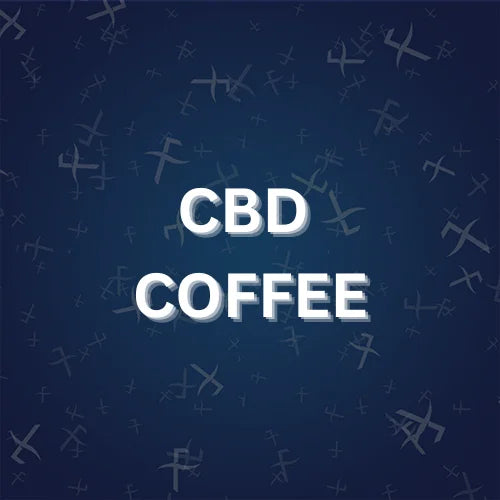


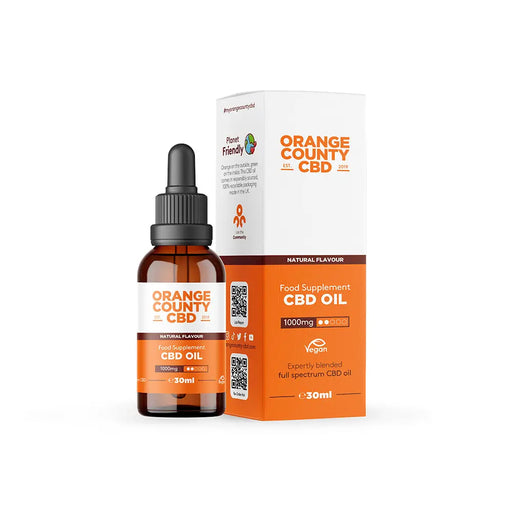
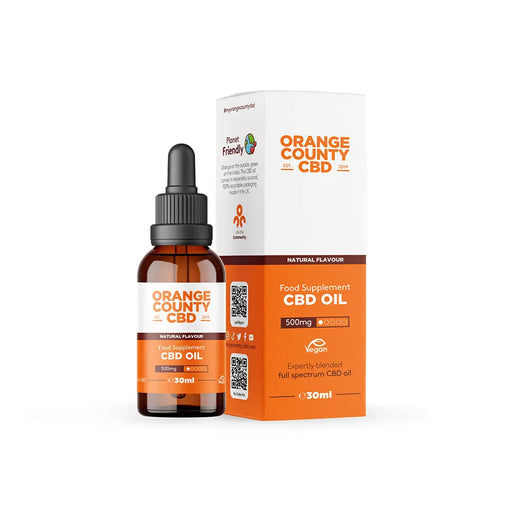
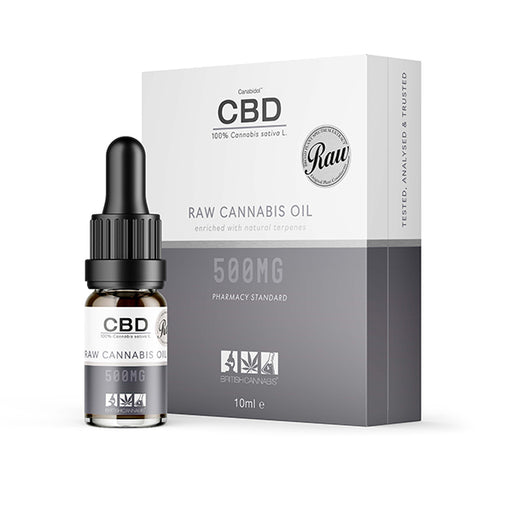
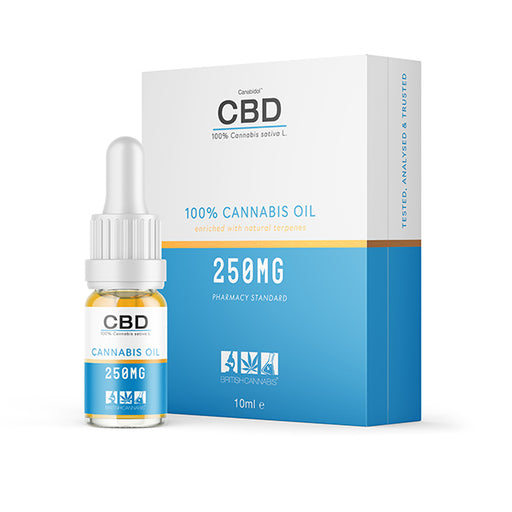


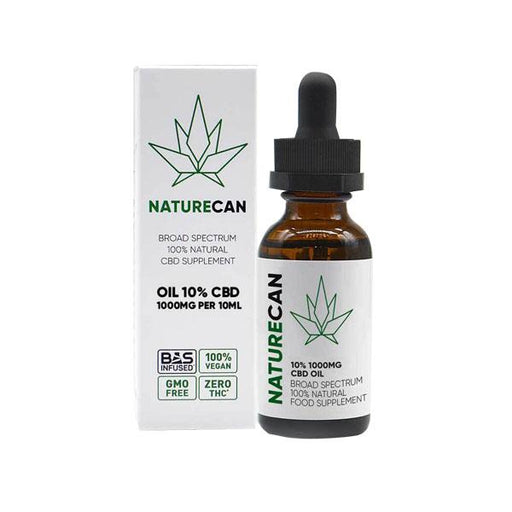
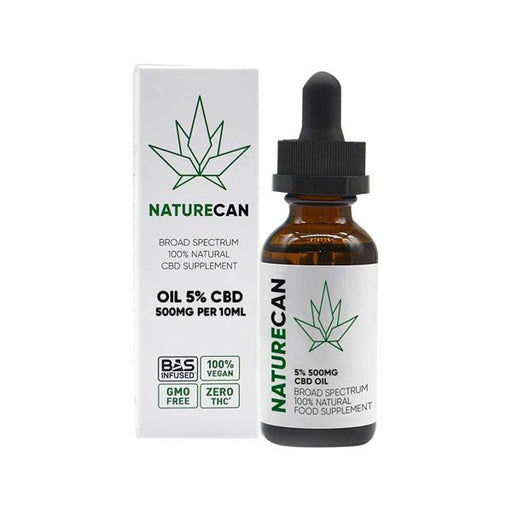


Leave a comment